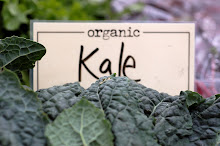
His book reads like a travelogue as he eats seafood in a variety of cities and shores, collecting the narratives of grey bearded characters, fishermen and fish farmers. So far it's a good, although disturbing read. My kind of a book.
In his op-ed piece , Sardines With Your Bagel?, Taras looks at the current state of salmon in the world. Not only the west coast where the commercial season is shut down, but wild caught salmon in Alaska and farmed salmon from Norway, Canada and Chile.
In his short essay Taras deconstructs the darling of the omega-3 fatty acid foods, worshipping it's benefits and highlighting it's sudden and not so sudden wild demise.
Can we ethically continue to eat it at this time, or not?
1 day ago

4 comments:
Just last September we were indulging in all the salmon we could eat, caught by my father-in-law off the coast of Oregon. Not this year! I'm just hoping the salmon recover after their little "break."
chile - Thank you! I love flax seed oil on rice. I knew there was another way to get the omega-3's.
donna - Wow. It doesn't get any better than having fish caught by family. I'm with you in hoping a break will recover the stocks but not too optimistic that it will be that easy. There are so many factors going against the salmon, not the least of which is the farmed salmon diseases that infect the wild stock. But people are paying attention and asking questions and that's all good news.
I saw this too, it was an intriguing editorial and a good argument for eating closer to the bottom of the food chain. I feel like we are so driven by nutritional fads that change every year. Michael Pollan argued the case in his recent book as I know you know. I think it's hard to base an ethic of eating on a science that is still so young. But I'll have to read Grescoe's book. So, what do you think? You didn't give your opinion!
audrey - Grescoe's book is a good one and makes me want to learn more about what's going on with the oceans and not just take his word for everything although he's not the first person I've heard speak or write about overfishing and the vanishing stocks of sealife. A couple of weeks ago I tried fresh sardines for the first time but other than that I'm staying away from seafood. It feels like the respectful thing for me to do at the moment given the rapid depletions occurring. I'm fortunate to have that choice and not be dependent on fish for food or nutrition. I know there are fish that are being caught sustainably and whose stock are not endangered but I'm giving them all a rest or maybe just a rest for myself. The current state of the oceans is hard news to take in.
Post a Comment